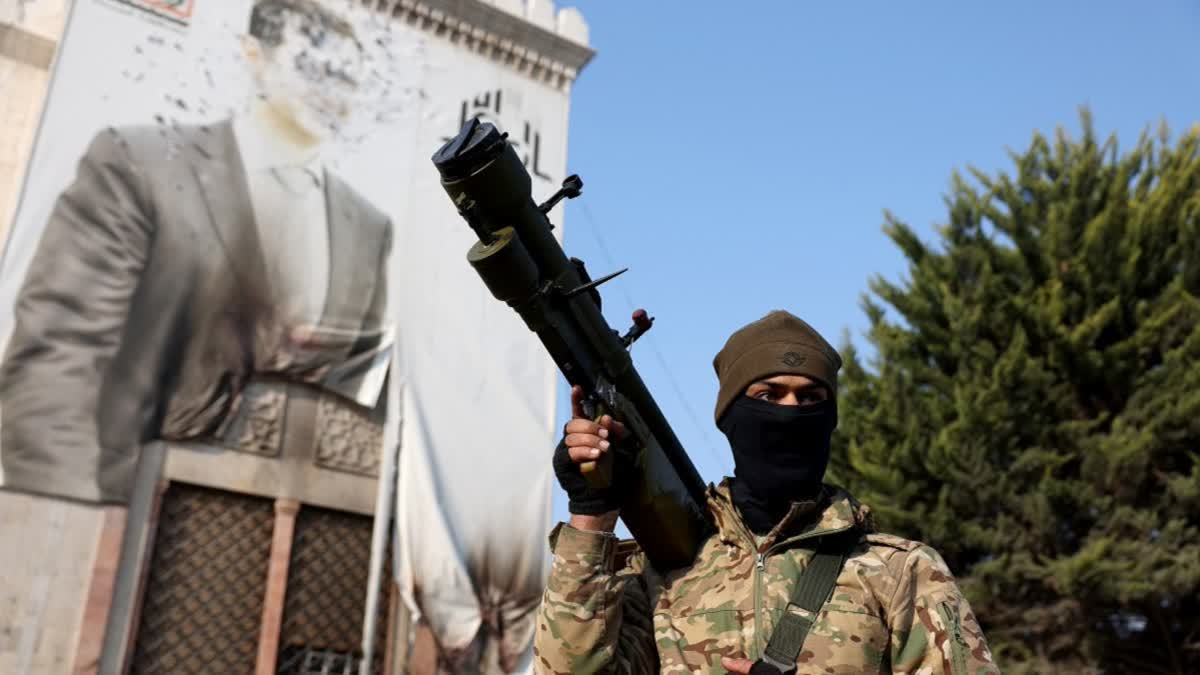New Delhi: For India, the fall of President Bashar al-Assad’s regime in Syria is more than just a regional power shift. It threatens to undermine strategic stability in West Asia, a region vital for New Delhi’s energy security and geopolitical ambitions.
Assad’s government, despite its contentious standing, has provided a semblance of order against extremist forces like the Islamic State (IS). According to experts, the vacuum left by his removal will now lead to chaos, empowering radical groups and jeopardising India’s interests in combating global terrorism and securing its diaspora.
The developments in Syria on Sunday come just a little over a week after India and the West Asian nation held foreign office consultations in New Delhi.
“The discussions reviewed the entire range of India-Syria bilateral relations, with a renewed commitment to energise the institutional mechanisms between the two countries,” a press release issued by the External Affairs Ministry following the consultations on November 29 had stated. “Both sides also discussed avenues to deepen the bilateral relationship with a special focus on areas like pharmaceuticals, developmental partnership and capacity building. The two sides also exchanged perspectives on important regional and global issues of mutual interest.”
How have India-Syria bilateral relations been like over the years?
India and Syria enjoy friendly relations based on historic and civilisational ties. Both countries have had a secular, nationalist and developmental orientation with similar perceptions on many regional and international issues. India’s traditional support for Arab causes, notably on the Palestinian issue and for the return of the occupied Golan Heights to Syria, was appreciated by the Syrians.
In terms of economic and commercial engagements India extended a line of credit (LoC) of $240 million to Syria in May 2009 for part financing (52 percent) of the 2x200 MW Tishreen Thermal Power Plant Extension project costing $430 million. India facilitated development and modernisation of the Hama Iron & Steel Plant in Syria, under an LoC of $25 million extended in 2008. Indian company Apollo International Limited along with GECOSTEEL, under the Syrian Ministry of Industry completed the project in May 2017.
Indian companies have long association in the Syrian oil sector since 2004, which includes two significant investments of $350 million. ONGC Videsh Limited (OVL) entered Syria with a 60 percent participating interest in an Exploration Block-24 in 2004. Subsequently, OVL acquired a stake of 37 percent jointly with China National Petroleum Corporation (CNPC) in Al Furat Petroleum Company (AFPC) in January 2016. Due to the challenging security situation, the operational activities are suspended in Block-24 since 2012.
India has been actively involved in capacity building of the Syrian youth in different ways. Under the ‘Study in India’ programme, a total of 1,500 seats have been offered to Syrian students for undergraduate, masters and PhD programmes in four phases since 2017-18 with emphasis on technical and managerial capacity building of Syrian youth.
Currently, the Government of India is offering 25 Indian Council for Cultural Relations (ICCR) scholarships to pursue various bachelors, masters and doctorate programmes in reputed Universities in India. A total of 90 trainings slots are offered to Syria annually under the Indian Technical and Economic Cooperation (ITEC) programme, which are short-term professional training programmes.
India’s interest in strengthening bilateral relations with Syria is rooted in strategic, economic, historical, and geopolitical considerations. Despite Syria’s complex internal dynamics and challenging regional environment, deepening ties with Damascus offers India significant opportunities and advantages.
By engaging with Syria, India could bolster its presence in West Asia and counterbalance the influence of rival powers like China and Pakistan, which are also expanding their foothold in the region. While India already has strong ties with the Gulf Cooperation Council (GCC) nations and Iran, engaging Syria added a new dimension to India’s West Asia policy.
Syria’s proximity to conflict zones and its involvement in counter-terrorism had the potential to help India in tackling global terrorism, particularly in combating radicalisation and extremist ideologies that may have spillover effects in South Asia.
What happened after the civil war broke out in Syria in 2011?
India’s friendly relations with Syria stood the test of time when the Syrian crisis broke out in 2011. India took its principled stand in resolving the conflict in a non-military way and through an inclusive Syrian-led political process. India maintained its embassy in Damascus even during the peak of the crisis. New Delhi continued to stress on a Syrian-led and Syrian-owned political process, in line with UNSC Resolution 2254, with a firm commitment to the sovereignty, independence, unity and territorial integrity of the Syria.
In July last year, then Minister of State for External Affairs V Muraleedharan visited Syria. The visit was seen as a new beginning of India-Syria ties after the Arab Spring uprising. During that visit, both sides discussed ways to further strengthen bilateral ties, including developmental partnership assistance, education and capacity building.
Close on the heels of Muraleedharan’s visit, in November 2023, India appointed Irshad Ahmad, an Arabic scholar, as its new Ambassador to Syria, a post that had been lying vacant for two years. Also, following the massive earthquake in Syria in February 2023, India had sent tonnes of relief material as part of Operation Dost.
